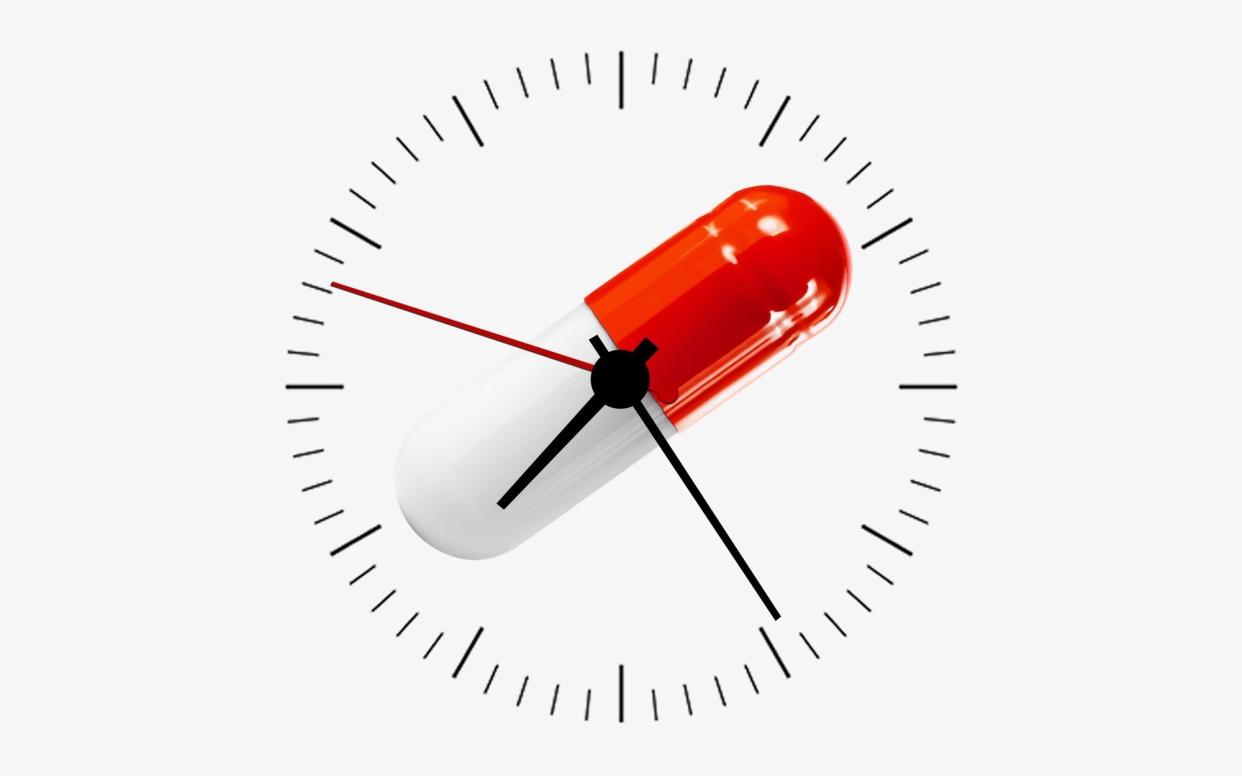Working around your body clock could boost effectiveness of blood pressure drugs

Blood pressure drugs are most effective earlier in the day if you are a morning person, and vice-versa for night owls, a first-of-its-kind study into the body clock’s effect on medicine has found.
Drugs for high blood pressure are the most commonly prescribed type of medication in the UK, but experts have been split on when the best time of day to take it is, with researchers drawing differing conclusions.
However, new research has for the first time looked at how the impact of the drug may differ depending on the habits and lifestyle of the person taking it and found that a personalised approach may be the answer.
The researchers from the University of Dundee found that a person’s chronotype - the time they wake up and go to sleep - impacts how they interact with their blood pressure medication.
Patients with high blood pressure were able to reduce their risk of suffering a heart attack by synchronising the time they take their medication with their predisposition to be an evening or morning person.
The study found that morning larks could reduce their risk of a heart attack by around 26 per cent if they took their medication in the morning, while night owls could cut the risk by 40 per cent with an evening dose.
Significantly, people also increased their chance of having a heart attack if they took the drug at the opposite end of the day to their chronotype.
The study split more than 5,000 people into morning dose and evening dose groups, with participants completing a questionnaire assessing their chronotype and experts analysing their sleep to establish if they were a morning or evening person.
There were on average two cases of non-fatal myocardial infarction requiring hospital admission per 1,000 years of patients’ lives - a standardised rate used to compare different groups.
The results suggest that taking blood pressure medication at a time aligned with personal chronotypes could provide extra protection for the heart and improve quality of life.
Blood pressure drugs are the most commonly prescribed medication in the UK, with as many as nine million people receiving prescriptions for drugs including ACE inhibitors, calcium channel blockers, beta blockers, and other blood-pressure lowering medicines.

Around 14 million people have high blood pressure but one in three are unaware according to the British Heart Foundation.
Dr Filippo Pigazzani, clinical senior lecturer and honorary consultant cardiologist from the University of Dundee’s School of Medicine, said: “Our research has now shown for the first time that considering chronotype when deciding dosing time of antihypertensives - personalised chronotherapy - could reduce the risk of heart attack.
“However, before any patients change when they are taking their antihypertensive medications, our findings first need to be confirmed in new randomised clinical trials of personalised chronotherapy.”
Around half of the study’s participants had an intermediate chronotype, and the authors said there was no significant difference in their rate of heart attacks or strokes regardless of their dosage timing.
Meanwhile there was limited evidence that the timing of a dose made a difference to the number of strokes that the patients suffered.
Although the researchers did note a trend that later chronotypes, or night owls, were at “incresed risk of non-fatal stroke, independent of dosing time”.
Dr Kenneth Dyar, a circadian biologist from Helmholtz Munich, who helped design the study, added: “We all have an internal biological clock which determines our chronotype - whether we are more of a ‘morning’ or ‘evening’ person.
“This internal time is genetically determined and affects biological functions over 24 hours, including gene expression, blood pressure rhythms, and how we respond to medications.
“It’s important for physicians to remember that not all patients are the same. Humans show wide inter-individual differences in their chronotype, and these personal differences are known to affect disease risk.”
The study has been published in the Lancet’s eClinicalMedicine journal.

